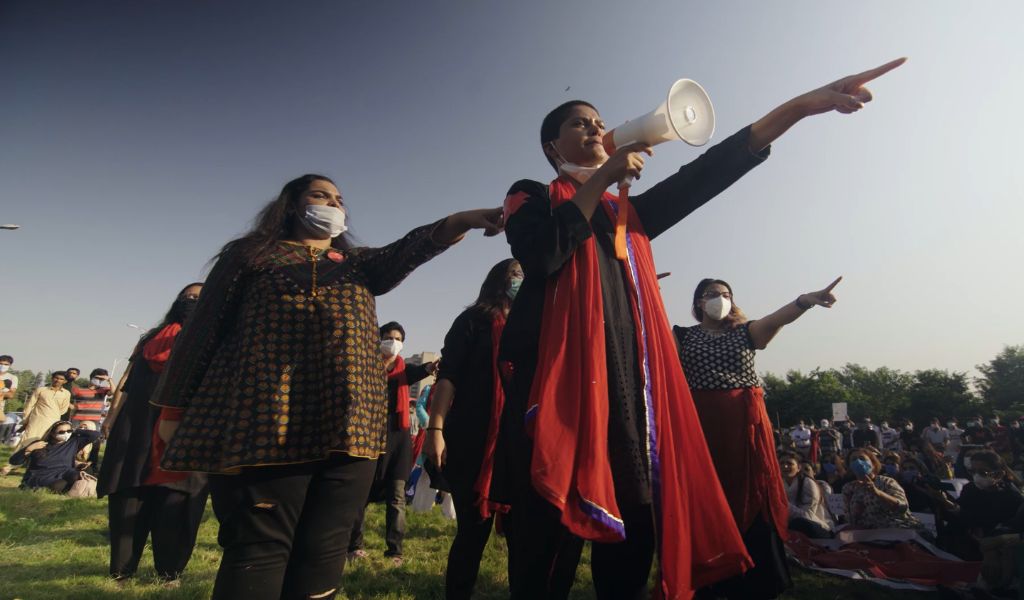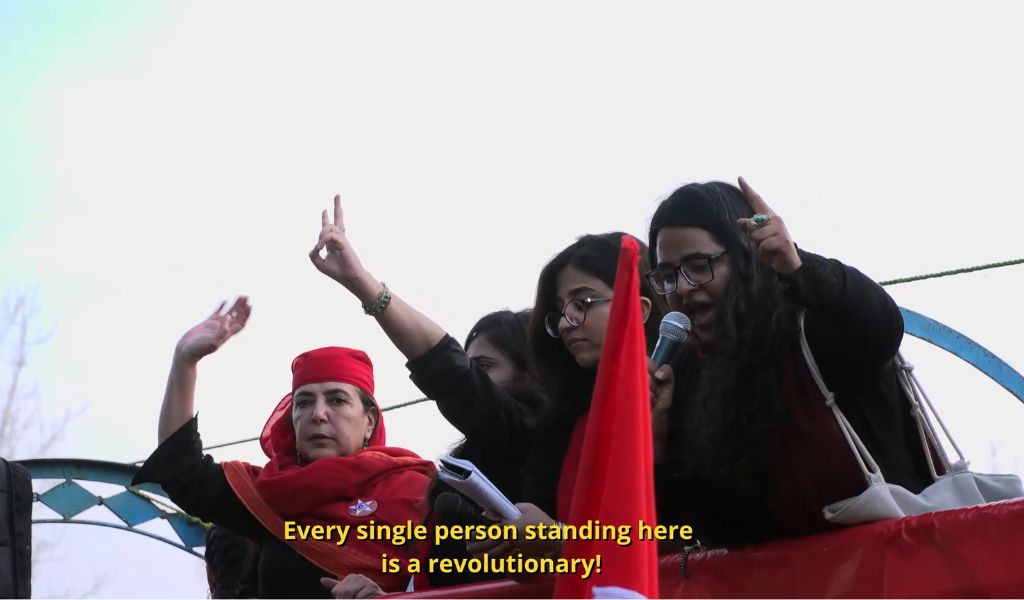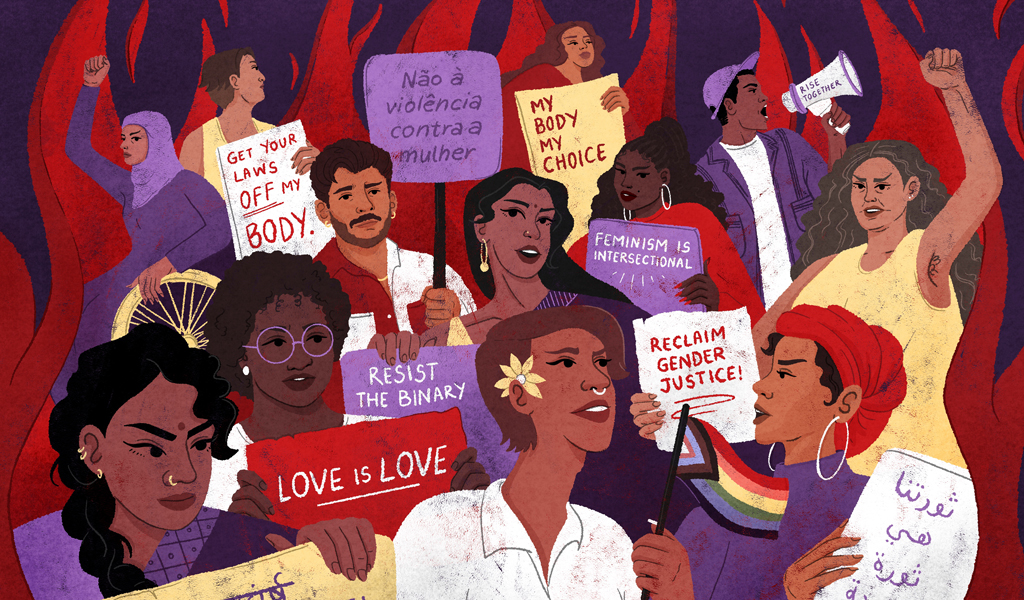In recent years, there has been a global shift in the fight for women’s rights and gender justice – from the overturning of Roe v Wade, the introduction of the Anti-homosexuality Act 2023 in Uganda, the revocation of transgender rights to self-identification in Pakistan, stricter hijab laws in Iran and the ongoing attempts to ban Muslim women’s attire in France.

Reflecting the initiatives at IDS committed to producing research, practice and learning on the backlash against gender justice, to mark this International Women’s Day we have two events with guest speakers at the forefront of defending gender rights through activism, filmmaking and research.
The events are organised in partnership with the gender justice research partnerships hosted by IDS: ‘Sustaining Power: Women’s Struggles against contemporary backlash in South Asia’ (SuPWR) and Countering Backlash.
This Stained Dawn: feminist documentary and director Q&A
On 5 March, the critically acclaimed filmmaker Anam Abbas will be screening her documentary ‘This Stained Dawn’. The film follows Karachi’s feminists as they organise a woman’s march (Aurat March), coming up against Pakistan’s radical religious right while negotiating a deeply surveilled and violent space in the hopes of a revolution.

‘This Stained Dawn’ is not just about the march, but about the act of political organising itself. The screening will be followed by a Q&A and discussion chaired by IDS Research Fellow, Professor Deepta Chopra.
Register to attend online or in person
Understanding gender backlash: Southern perspectives
On 7 March, is the launch of the new IDS Bulletin ‘Understanding Gender Backlash: Southern Perspectives’. The bulletin issue addresses urgent questions of how we can better understand the recent swell of anti-gender backlash across different regions. It explores different types of actors, interests, narratives, and tactics for backlash in different places, policy areas, and processes.

The bulletin is produced by the Countering Backlash programme. It includes contributions, insights, and expert knowledge from programme partners in diverse locations across South Asia, Sub-Saharan Africa, Brazil, Lebanon and the UK. During the panel discussion, speakers will reflect on their articles and share key findings from their research, followed by an audience Q&A.

